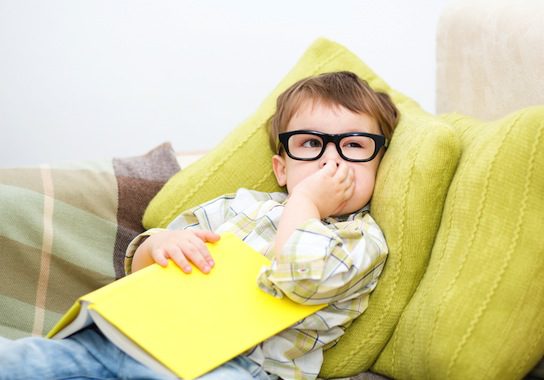Why I’m Leaving Goodreads

Back a couple years ago, I started using Goodreads: it’s a useful tool to keep track of books read and enjoyed, and it’s a great place to discover books not yet read. But now I’m considering a step away. And it has nothing to do with the social network itself—it has to do with me, and the susceptibility to self-consciousness as a reader.
Tania Unsworth, an author of three books, described this tendency well in her recent post on Nerdy Book Club. She reminisces on reading as a child, the utter abandonment it proffered, and compares it with her reading now:
There was an intensity to reading then, a kind of total involvement in story that is hard to reproduce as an adult. I know too much now about tired plots and clichés. I am always comparing one thing to another, recognizing devices, identifying styles. No matter how good or bad I find something, I’m always aware of my response, slightly detached, consciously enjoying or not enjoying.
She writes of a time when she was a “girl of eleven, with a flashlight under the covers, devouring The Chronicles of Narnia”—when there was a complete immersion in the world of the novel, when one connected with a book’s protagonist and experienced the world through the eyes of the “other” in a powerful, beautiful way.
Why do readers lose this sort of joyous abandonment?
Perhaps it starts with book-based essays and college papers: with the constant call to analyze, quantify, and measure what we’re reading. This is, to some extent, unavoidable. But it doesn’t end there: the social media world encourages us not to do things for their own sake, but rather for the approval and attention of our burgeoning online audiences. We don’t just read according to the suggestions of others; we don’t just join book clubs. Rather, we Instagram pictures of ourselves reading, join a social network where we can show off our huge bookshelves, and post smart-sounding quotes on Facebook. I’ve done this—perhaps we’ve all done this. The problem is that it uses the author, the book, and the protagonist for our own personal, selfish ends. It makes the book about us, rather than about the story itself.
There’s also the siren call of list-making: we all love watching a list of accomplishments grow and grow. This is perhaps the largest reason I find Goodreads dangerous, personally: it enumerates the books I’ve read, and organizes them into admiration-worthy lengthy lists. It encourages me to look not at the quality of reads, not at the specific beauties of various works, but to admire and venerate the amalgamated monstrous whole. Thus, I begin to rush: I want to finish this book, that book, and the next—not to meet a deadline, necessarily, not because I’m so engrossed in the book I can’t stop—but merely because I want to check another book off my list.
Perhaps, as a writer and occasional book critic, this sort of self-conscious reading will be somewhat inevitable in the future. But I do want to re-experience the animation and passion that Unsworth describes in her article. There is a beauty to the imagination that deep-reading requires. Whenever we read for criticism, for an audience, or for the joys (and dangers) of list-making, we will always have another besides the story in mind: whether it be ourselves, or our audience.
Unsworth is re-finding her love of reading through children’s literature. She’s right to look there, in the innocence and beauty of that world. But whereas she says “there are probably only a handful I have read as an adult that I would say changed my life,” I personally disagree. Some of the works that have moved me most were ones read in college and immediately after: East of Eden by John Steinbeck, Anna Karenina by Leo Tolstoy, Gilead by Marilynne Robinson, and The Fall by Albert Camus (to name a few). These books moved and changed me. The important ingredient here was that I did not read them with an agenda, or for an essay or audience—I came to them eager and thirsty to know them, to understand their characters, their plots, their inner meaning. And they did not disappoint.
In the future, perhaps I’ll keep a book journal, to jot down favorite quotes and books for future reference. But it will be a personal, casual, meandering sort of a practice. Not a list—not organized at all. The purpose will be to encourage contemplative, deep reading, not the mechanistic process of checking books off a list.
Like Unsworth, many of us have lost something since our childhood reading days. To put it simply, we’ve lost the “lostness”—the sheer abandonment children can experience when they give themselves wholeheartedly to their imagination. As we grow older, perhaps we become too distracted and responsible to do this. But a growing awareness of self (perhaps primarily) also discourages this lostness. To gain back that deep reading, I must give up my lists, my media presence—and myself, most of all.
Comments